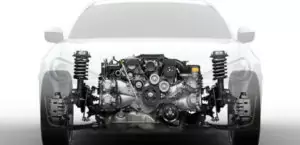The 5.0-liter 12-cylinder BMW M70 or M70B50 engine was produced from 1987 to 1994 and was installed on the top models of the concern of its time: the 7-Series sedan and 8-Series coupe. In addition to the usual 300 hp version, there were 350 hp D1/1 motors for Alpina models.
The engine was installed on:
- BMW 7-Series E32 in 1987 – 1994;
- BMW 8-Series E31 in 1989 – 1994.
Specifications
| Production years | 1987-1994 |
| Displacement, cc | 4998 |
| Fuel system | distributed injection |
| Power output, hp | 300 350 (Alpina D1/1) |
| Torque output, Nm | 450 470 (Alpina D1/1) |
| Cylinder block | aluminum V12 |
| Block head | aluminum 24v |
| Cylinder bore, mm | 84 |
| Piston stroke, mm | 75 |
| Compression ratio | 8.8 9.5 (Alpina D1/1) |
| Features | no |
| Hydraulic lifters | yes |
| Timing drive | chain |
| Phase regulator | no |
| Turbocharging | no |
| Recommended engine oil | 5W-40 |
| Engine oil capacity, liter | 7.5 |
| Fuel type | petrol |
| Euro standards | EURO 2 |
| Fuel consumption, L/100 km (for BMW 750iL 1990) — city — highway — combined |
20.8 8.9 13.6 |
| Engine lifespan, km | ~340 000 |
Disadvantages of the M70B50 engine
- First of all, you should know that the BMW 750 usually consumes about 25 liters per hundred;
- The main problems here are delivered by electronic throttle control units EML;
- Quite often, the cause of a malfunction in the engine ECU is a simple break in the wiring;
- Many owners have experienced severe valve guide wear;
- The weak points of the engine also include ignition coils, crankshaft position sensor.






